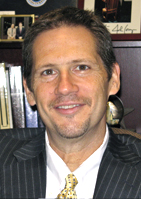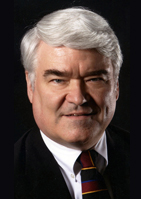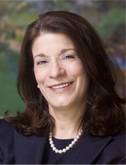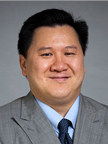© 2013 The Texas Lawbook.
By Mark Curriden
Senior Writer for The Texas Lawbook
Last fall, Governor Rick Perry told his general counsel to review the applications of dozens of candidates for an open seat on the Texas Supreme Court and make a recommendation for an appointment.
Weeks later, Jeffrey Boyd sat down with the governor to go over his analysis.
“He cut me off and told me he had already made up his mind,” says Boyd. “I had not applied for the job and my name was not on the list, but I guess I pulled a Dick Cheney.”

Boyd, who was appointed to the state Supreme Court in November and sworn in Dec. 3, has jumped right into the fire, already joining written opinions, aggressively asking questions from the bench and challenging his fellow justices.
“It’s been like drinking water through a fire hose – it is coming at me fast and furious,” he says. “I told everyone that I was going to sit like a bump on a log through my first several arguments so as to not show my ignorance, but I couldn’t help myself and had to jump right in.”
Justice Nathan Hecht, who is the longest serving member of the Texas Supreme Court, says that his new colleague wasted no time in asserting himself when the justices have met privately in conference to discuss and decide cases.
“No, he’s not been shy or hesitant at all,” Hecht says laughing. “Conference is pretty daunting for new justices because of the number of cases and the depth of the discussion and the expectations we have of each other.

“Jeff has shown he is more than willing to speak up and has his own voice,” he says.
Indeed, Boyd, who is 51, has been the talk of the Texas legal community. Everyone seems to know him and respect him, but they have no idea about his judicial philosophy.
Some legal observers say he is a far right-wing conservative, in the mold of his two previous bosses, Gov. Perry and Attorney General Greg Abbott. They contend he will continue the trend of pro-business and anti-plaintiff decisions for which the Texas Supreme Court has become known.
Other lawyers who have worked with Boyd say business groups shouldn’t take him for granted and trial lawyers and advocacy groups shouldn’t write him off. They say he is much more moderate, pragmatic and independent than is being projected. They say he is a likely critical swing vote on various major legal issues.
“I don’t have an agenda here,” says Boyd, who was a lawyer with Thompson & Knight for 15 years. “The governor didn’t send me up here to accomplish a particular political agenda.”
While many legal experts strongly believe his first quote but quickly scoff at his second comment, they say the question is, will Justice Boyd simply fall in line with the politics of his former bosses or will he frustrate hardcore conservatives by going his own way, as Chief Justice Wallace Jefferson has done?
Former Texas Supreme Court Justice Deborah Hankinson, who has known Boyd since he first started practicing law at Thompson & Knight in Dallas, says Boyd could play a very influential role on the court.

“Jeff is a very fine lawyer – very even-tempered and is willing to listen to all sides,” says Hankinson, who now specializes in appellate law and mediation at the Hankinson Law Firm in Dallas. “I think he will apply that quality to his decision making and he will be a thoughtful judge.
“If you really listen to what Jeff says and see the people who have truly influenced him in his life and career, you will realize that Jeff is very independent,” she says.
Legal experts say that Justice Boyd could possess enormous sway on a wide array of business matters either pending before the state Supreme Court or working their way through the lower courts on their way to the state’s highest court.
Those include the expansion of the state and local government’s authority under sovereign immunity, how aggressively to monitor and reverse jury verdicts, whether to expand the oversight powers of appellate courts over trial judges and the ability of appellate courts to review challenges to arbitration awards.

“As a top legal advisor to both the Governor and the Attorney General, he has seen it all,” says James Ho, a partner at Gibson, Dunn & Crutcher in Dallas. “And his experience will prove invaluable, especially on a court that is routinely faced with the state’s most challenging legal disputes involving state and local governmental agencies, sovereign immunity, and the legislative process.”
Plaintiffs’ lawyers think Justice Boyd could even be the swing vote they need to reverse a landmark decision issued last year in which the justices eliminated the ability of injured workers to sue insurance companies for acting in bad faith.
“The Texas Supreme Court is split between justices who are conservative and those who are very conservative,” says Mike Hatchell, a partner at Locke Lord who has monitored the state’s highest court for several decades.
“My guess is that while Jeff will not be looking to expand causes of actions and rights to sue, he will side much more with the moderate-conservatives, such as Chief Justice Jefferson,” he says.
Even plaintiff’s lawyers are praising Boyd in a way that causes far right conservatives to shutter.
“Jeff is analytic, reasonable and very knowledgeable,” says Houston attorney Mike Gallagher, a past president of the Texas Trial Lawyers Association who worked with Boyd in negotiating HB-274, the “loser pays” and expedited trials legislation in 2011.
“He’s a good lawyer, knows what he’s doing and will make an excellent contribution to the court,” says Gallagher. “He’s a fair-minded person and he has a deep commitment to doing the right thing. He has all the attributes to be a great justice.”
There’s no bigger issue the Supreme Court faces than the scope of appellate review, including the appellate court’s ability to monitor grants of new trials by trial judges, according to Reagan Simpson, an appellate partner at Yetter Coleman in Austin.
“Those orders have been virtually unreviewable, with limited and fairly rare exceptions, but those exceptions have been enlarged slightly and may be enlarged significantly by the court’s next decision in this area,” says Simpson. “Any significant expansion of review could lead to an expansion of appellate power and a decrease in the trial court’s power.”
Boyd, in his interview with The Texas Lawbook, said that he plans to “look for error” in deciding whether to take a case.
“If it is an issue that I think will come up a lot in cases, then I think that needs to be considered,” he says.
“I think you will find that I’m a much shorter writer than my predecessor,” Boyd says. “I don’t believe in writing on stuff that doesn’t have to be written. I believe in addressing the issue in question.”
Born in Biloxi and raised as an Air Force brat, Boyd called a lot of places home. He moved five times in four years, including stints in Del Rio and Kaiserslautern, Germany.
“I was the third of four kids and, although we never had any real ‘hometown,’ I grew up learning that family and – in our case – a local church, were the two real constants in life, no matter where you were,” Boyd says. “I developed a real appreciation for the differences in people and their cultures and priorities.
“We all have a tendency to think that everyone lives and sees the world and values things just like we do,” he says. “If someone doesn’t see things like we do, we usually think they should, or at least think they would if they were as enlightened as we are.”
After graduating from Round Rock High School, Boyd went to college at Abilene Christian University and graduated summa cum laude from Pepperdine University School of Law, widely regarded as one of the most conservative law schools in the country.
But those judging Boyd by the company he’s kept get a sudden jolt: he clerked for Judge Thomas Reavley of the U.S. Court of Appeals for the Fifth Circuit, who is one of the most respected appellate judges in the country. Most legal experts considered Judge Reavley, who was appointed to the bench by President Jimmy Carter, to be a moderate, though most political conservatives described him as leaning liberal.
“Going from clerking for me to working for Rick Perry – that’s a pretty big difference in thinking,” says Reavley, who lives in Houston. “But Jeff has his ego in check. He doesn’t pretend that he knows everything. He’s a very compassionate man who doesn’t leave the Sermon on the Mount out of his Bible teachings.”
Reavley says that he believes Boyd shares his view that the recent steep decline in the number of jury trials due to tort reform and other reasons is worrisome.
“I don’t think Jeff is inclined to substitute his opinion over the judgment of the jury,” he says.
Boyd readily admits that Judge Reavley and Sen. John Cornyn, who is a former state Supreme Court justice who was widely viewed as a moderate during his time on the court, are his two role models as jurists.
“Although one is a Republican and the other is a Democrat, as judges they both sought to put their politics aside and simply decide the cases before them based on the law and their sense of fairness and justice in its application,” he says. “They served the law rather than themselves, and did so with a dignity that engendered respect and appreciation for the law, the bench, and the legal profession. I hope to do the same.”
While Boyd declined to discuss specific issues or cases pending before the court, he says he believes judges should respect the role juries play and that he is concerned about the declining number of jury trials.
The Texas civil court system is “facing a relevance challenge” when it comes to serving the public, he says.
Boyd says the increasing costs of litigation has made going to court impossible for many Texans, which is an issue the Supreme Court can help address.
“I couldn’t afford myself as a lawyer,” he says.
Boyd also says that the “perception of judges as political operatives, due primarily to our practice of choosing judges through partisan elections” is undermining public confidence in the justice system.
“Partisanship has taken a very heavy toll on every aspect of our life, and that includes our courts,” says Judge Reavley. “Jeff knows who appointed him and he’s very sensitive and conscious of the perceptions and concerns that it raises.
“But I am convinced that Jeff is peculiarly equipped to handle this pressure and he is going to be an excellent justice,” says Judge Reavley.
Don Cruse, an appellate law expert in Austin and author of SCOTXblog.com, says there have been between six and nine decisions by the Texas Supreme Court during the past two years where Justice Boyd could have wielded a deciding influence.
“Keep in mind that there are flavors of conservatism and it will be a year or so until we have enough data points to figure out where Boyd stands,” says Cruse.
Former Texas Supreme Court Justice Craig Enoch, now a partner at Enoch Kever, agrees with Cruse.
“It is too early for us to know what areas of law where he might strike out on his own,” says Enoch. “Jeff doesn’t seem to be motivated by what is more or less conservative, but what the law says and what is the right way to decide a specific case.”
© 2013 The Texas Lawbook. Content of The Texas Lawbook is controlled and protected by specific licensing agreements with our subscribers and under federal copyright laws. Any distribution of this content without the consent of The Texas Lawbook is prohibited.
If you see any inaccuracy in any article in The Texas Lawbook, please contact us. Our goal is content that is 100% true and accurate. Thank you.
